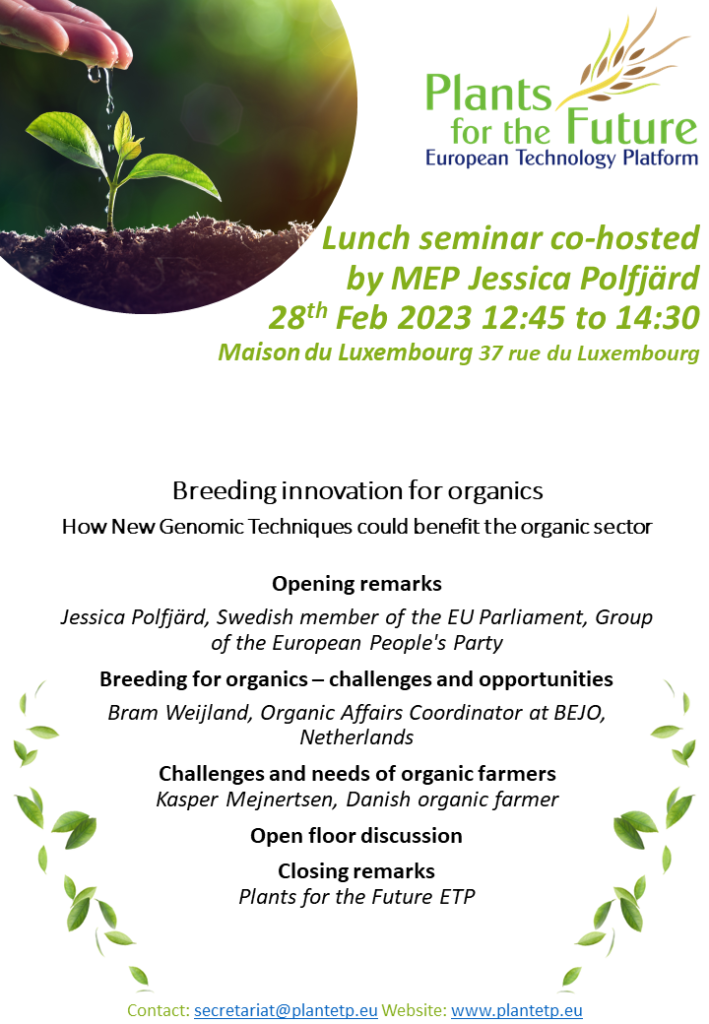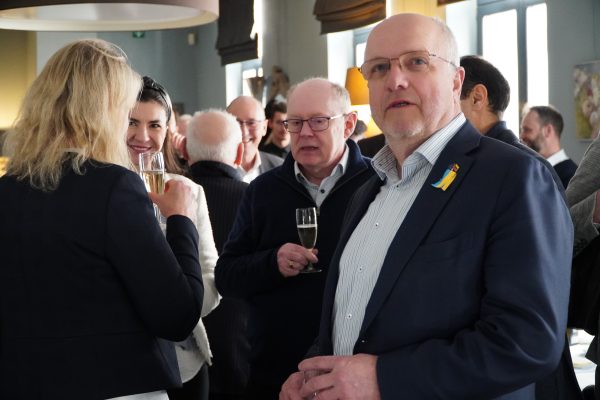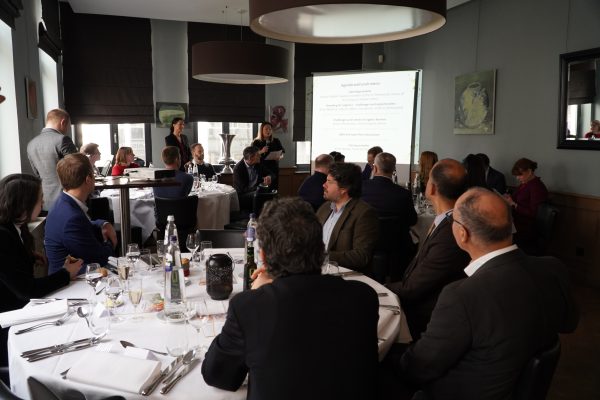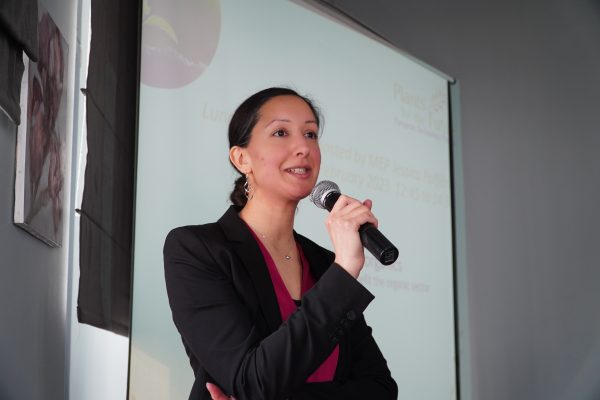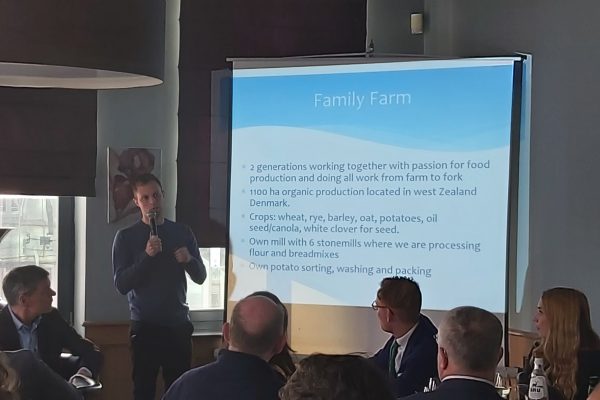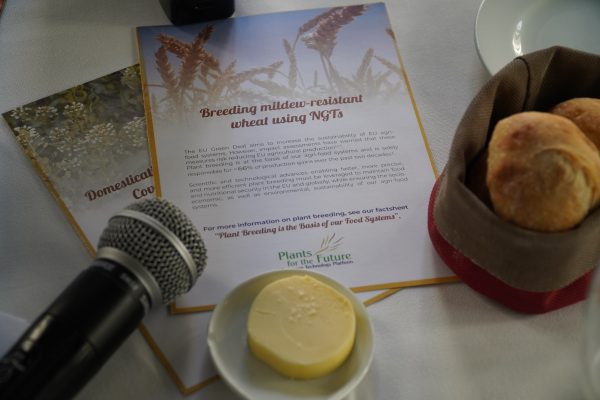Lunch seminar – Breeding innovation for Organics
How New Genomic Techniques (NGTs)could benefit the organic sector
28th February 2023 – Plants for the Future ETP co-hosted in Brussels a lunch seminar to discuss the potential of New Genomics Techniques (NGTs) and how they could benefit the organic sector. The lunch seminar was organised in honour of the Swedish Presidency to the EU Council and co-hosted by Swedish MEP Jessica Polfjärd from the European People’s Party (EPP).
The aim of the event was to acknowledge the diversity of views and opinions of different actors of the organic sector, on whether or not NGTs should be should be used to benefit the organic sector.
Opening remarks were provided by MEP Jessica Polfjärd, providing the policy perspective, highlighting current and future challenges of our food systems, and requesting the EU commission to put forward a science-based legislative proposal that will enable the use of NGTs in Europe to support the transition to more sustainable food systems.
A presentation about breeding for organic by Bram Weijland, Organic Affairs Coordinator at Bejo in the Netherlands, one of the bigger family-owned breeding companies in Europe. Bram highlighted how conventional and organic breeding are interconnected and benefit from each other, providing an example of downy mildew-resistant onion and another example on breeding of Brassica hybrids using cytoplasmic male sterility achieved through protoplast fusion, a GM technique that was exempted from GMO regulation (Annex IB).
It was stated that if use of NGTs would be approved and regulated like conventional breeding methods, Bejo would consider to use these in its organic breeding programmes, offering a free choice to organic markets open to NGTs, while at the same time providing that information to its farmers to enable this freedom of choice.
The following presentation was from Kasper Mejnertsen, an organic farmer from Denmark, demonstrating how his multigenerational family-run farm, is not only producing a wide range of crops, but also producing products for direct sale. Kasper highlighted the need for innovation to support the organic sector and the importance of plants as the source of food, feed and biomass for the greater bioeconomy
The presentations were followed by a Q&A and an open floor discussion sharing different views on whether or not NGTs should be used in organics. While there was no agreement on this question, it was acknowledged that conventional and organic breeding programmes should not be separated, or it will be a disadvantage for both.
Closing remarks were provided by Amrit Nanda, the Executive Manager of Plants for the Future ETP, who highlighted the challenges ahead and the need to provide solutions for farmers of all production systems and move away from views that artificially separate conventional and organics production systems, but rather focus on synergies and how the best of both worlds could be leveraged for the benefit of all.
Plants for the Future ETP is eagerly awaiting the EU Commissions legislative proposal for plant produced by certain NGTs and looks forward to continuing the discussion.
Read the Press Release here.
